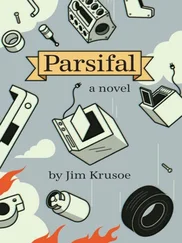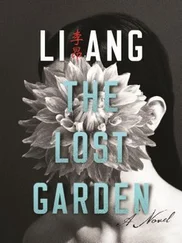Tech #1:
Then why don’t
they
call it slop?
Tech #2:
Are you kidding? Who would eat anything called slop?
Tech #1:
But you eat it, don’t you? I do, too.
Tech #2:
Well, slop is what I call it when I’m talking about it with you, but the truth is that I made up another name for it, one I don’t tell anyone else, but which helps me keep it down.
Tech #1:
Will you tell me, so maybe I can feel better about eating it?
Tech #2:
I’m sorry. You’ll have to get your own names for things.
Tech #1:
And why do they get real food, while we’re the ones who have to eat this?
Tech #2:
Honestly, I don’t have the answer to that. I’ve wondered myself. All I can say is the reason must be above my pay grade.
Tech #1:
You mean
our
pay grade.

Twilight souls, caught somewhere between dark and light, knowing and unknowing.
Neither one thing nor another. A crossbreed race.

A cross bow .
And not a race at all.

At the Masonic Hall, the Captain studies the crowd again; they are still good; they are still with him. He goes on: “I was standing in the shabby office of the harbormaster, a cunning fellow by the name of Ali Khan, waiting to complete the paperwork required before my vessel, the Shanghai Pearl , could leave the harbor. The papers were an important matter because, as I stood peering around in the darkness of the man’s office, the Pearl was still at dockside, loaded with several tons of tuna kept cool on ice. But as dark and damp as it was inside the office, it was still unbearably hot, and the ice aboard my ship was melting fast.”
What is it about stories, the Captain wonders, that people want so much to hear them? Is it that they represent a knowledge people imagine they don’t have? That stories take people on voyages to places that are different from their own pathetic wanderings? Is it that stories, unlike most people’s miserable existences, have definable boundaries, have beginnings and known endings, whereas in real life we discover ourselves dropped onstage midway through some ongoing dramatic series, or maybe a situation comedy, and we’re expected to figure out what role we’re to play, never knowing if this current episode will be the last or will be renewed by the network for another season? Sitcoms — he knows a little something about them, too, he’s sorry to report.
“I could see Ali Khan sipping some native firewater from a tall bottle on his desk,” the Captain continues, “as he measured me in the light of the two oil lamps burning in his office. The lamp on his desk cast its yellow glow over his official papers, while the second lamp, on top of a file cabinet, had been seemingly placed for the sole purpose of illuminating Old Lucifer, a stuffed fighting gamecock that, Ali Khan explained, had been a legend in his day and that he had won at cards from a drunken deserter from the Russian Navy. The rooster’s fighting spurs and the silver bells on his tiny cap glinted in the thin light of the harbormaster’s second lamp like a beacon beckoning me to I knew not what.”
“I knew not what. . ” What a load of crap this is, the Captain thinks. And now it’s time for a sip of water. He drinks.
“I paused to see what other objects I could make out. Besides Old Lucifer, I could see nothing through the gloom except six glass jars atop Ali Khan’s massive desk. Each was filled with sharpened pencils, even though the point of the pencil he was holding in his hand at that very moment was worn, hardly a point at all, as it hovered above a sheet of foolscap covered with images of crudely drawn dirigibles, each dropping a stream of egg-shaped bombs. The bombs’ trajectories were represented by a series of dotted lines that stretched from the bellies of the dirigibles where they had been released to the plummeting bombs themselves.”
The Captain speaks the word bombs with a special push, and is satisfied to see the audience straighten. Nothing like the promise of violence to make the swine sit up , he thinks.

And where is Louis? Jeffery wonders. Sometimes he pictures him shuffling his slippers down some dusty sidewalk outside the Burrow, wearing his sweater, lugging bags of groceries to whatever new abode he’s found, and at other times he sees Louis on vacation, strolling to or returning from the beach wearing the same slippers he wore while in the Burrow, but now amid a flock of tanned and luscious bodies and without the sweater, because it’s too hot for that. But most often in Jeffery’s mind Louis is doing something simple, like trying on hats at the Mad Hatter’s in the mall. Did Louis wear hats? The truth is that because he never saw the man outside the Burrow he has no idea, but a fedora would look good on him. Louis should wear a hat , Jeffery thinks. It’s not too late. Or is it?

“‘Mon cher Captain,’ Ali Khan said,” the Captain tells his audience, “‘it is a very great pity, but with our newly installed government many, many additional forms have arrived, and these will need to be completed before you can leave the port. I hate to mention it, but it is no longer the old days, Captain, when a person such as you could arrive and sail out in a single afternoon. With all these new forms to be dealt with, I cannot imagine you departing before a week has passed, perhaps five days at the very soonest.’
“As Ali Khan took a sip from a filthy glass of ghastly colored liquid and awaited my reply, I studied him. He was thin, and his olive skin and dark hair reminded me of nothing so much as the breadsticks my mother used to bake and let me poke into a pot of prune jam when I was a boy.
“‘But surely, Ali Khan,’ I said, ‘for an experienced manager such as yourself, there must be some way to expedite matters.’ I stopped, omitting the perishable nature of my cargo. We both understood that in twenty-four more hours the fish aboard the Shanghai Pearl would be absolutely spoiled, and the ship’s owners’ fortunes ruined, and I didn’t want to give him an extra card to display before me.
“Ali Khan shut his catlike eyes and pretended to be deep in thought. Then he opened them, one at a time, a trick that I later became familiar with in other offices of government officials in that part of the world — but whatever they hoped to accomplish by employing it I could never understand. He pretended to stare at a ceiling fan that, while impossible to see, I could hear churning its way through the darkness. Ali Khan returned his gaze to me, and said nothing. I had a good idea of what he was up to.
“‘I wonder,’ I suggested, ‘if there is any way that you might be able to find someone you can trust — possibly a relative of yours — who might have a few free moments to ensure that the forms are correctly filled out. I would be willing to pay as much as one hundred dollars an hour if such a person could be found.’
“Ali Khan laughed, as if he found the possibility of such an original notion to be highly entertaining. Meanwhile, I crouched on my side of his massive desk like a tiger, a man-eater such as I often observed, who, too wounded or too old to hunt more challenging game, settles on the easiest prey of all, native flesh. Above us, the sounds of the fan struggled through the blackness, and outside the open window I could hear the cries of umbrella vendors hawking flimsy domes that had been hastily constructed out of palm leaves and plastic grocery bags. The two of us sat as still as the hand-carved statues of the Buddha that could be bought cheaply at the local market.”
Читать дальше













